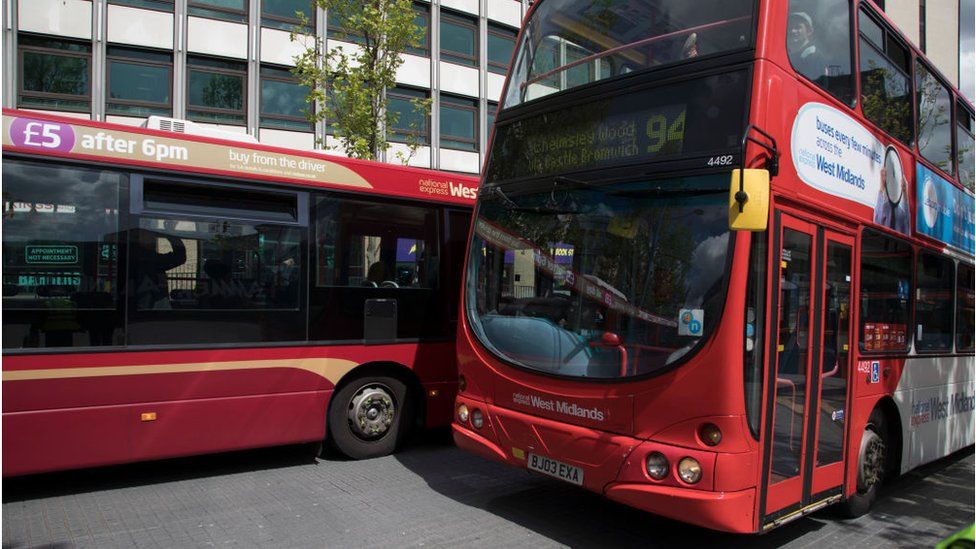ARTICLE AD BOX
 Image source, Getty Images
Image source, Getty Images
Axing bus routes in England leaves communities "cut off" from essential services and interactions, campaigners have warned.
The latest official data shows a reduction of 2,803 bus routes in 2023 compared to two years ago.
Labour accused the government of "vandalism against communities" and said more services were at risk.
The Department for Transport said the increase was partly down to changes in the bus licensing system.
Paul Tuohy, from Campaign for Better Transport, said reduced bus services is "leaving communities cut off from jobs, education, services, friends and family".
Mr Tuohy urged the DfT to provide more long-term funding for buses.
"We need an end to competitive funding and instead, long-term investment in the form of a single funding pot for all local authorities," he told the BBC.
The Traffic Commissioners for Great Britain, which is responsible licensing and regulating bus services, has seen registrations go down from just over 12,000 in 2021 to fewer than 9,000 in 2023.
Louise Haigh, Labour's shadow transport secretary, said: "The staggering decline in local bus services under this government is nothing short of vandalism against our communities.
"Millions of people rely on these essential services, but they are being left without a voice as routes are cut back year after year.
"Labour's plans will put passengers first by allowing communities to take back control over their bus services."
But a DfT spokesperson said it was misleading to equate the figures directly with changes in the number of bus routes.
They said the Traffic Commissioners did not count services that are now licensed by local transport authorities.
Buses are the most popular form of public transport in England.
The government extended the £2 cap on bus fares in England until the end of October.
The cap, which applies to more than 130 bus operators outside of London, was first introduced during the pandemic to support bus firms when passenger numbers fell.
Extending the current cap until the end of October and then subsiding fares at £2.50 until November 2024 will cost £200m, the government said.
Currently the average cost for a single journey for an adult is £2.80, but can exceed £5 in rural areas, the government says.
The Department for Transport said it would provide £300m to councils and operators until 2025 to protect routes that passengers rely on for work, education and medical appointments, and to improve infrastructure.

 1 year ago
74
1 year ago
74








 English (US) ·
English (US) ·